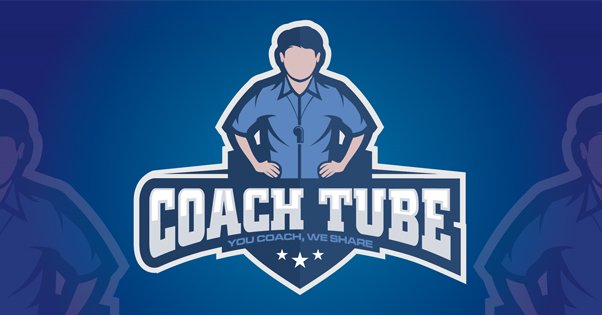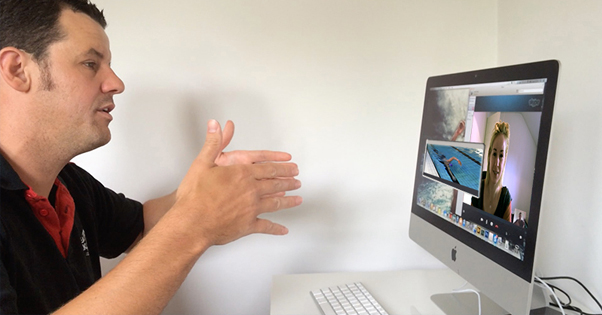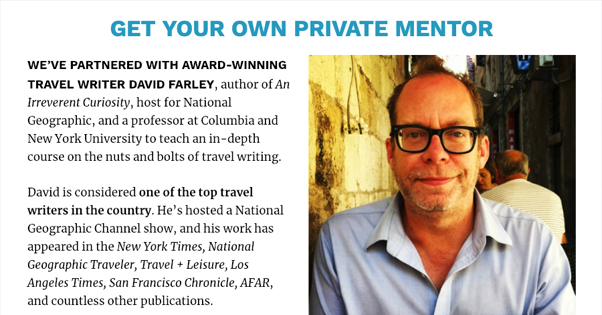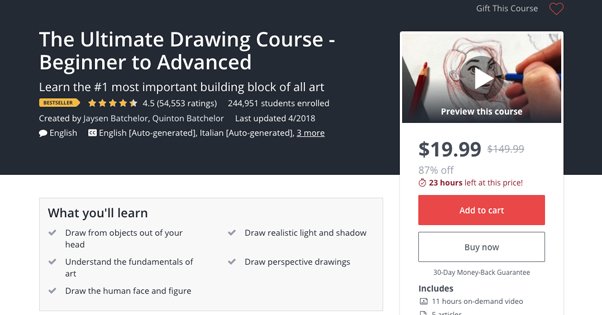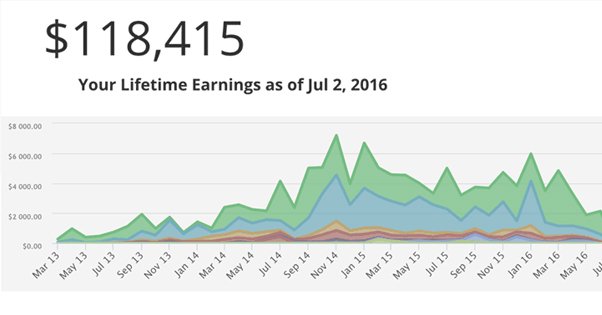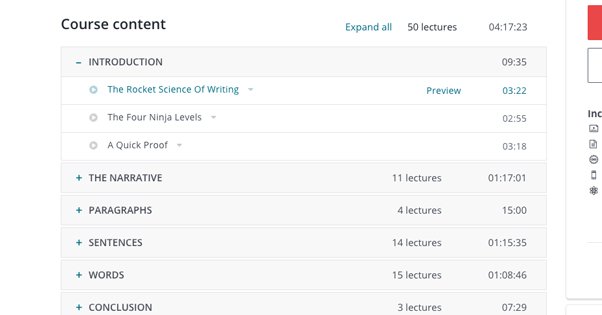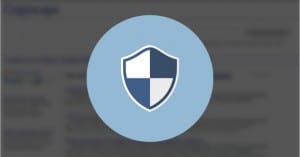The Ultimate Guide to Selling Coaching Services on Your Blog
Published by James Parsons • Monetization • Posted December 21, 2018 ContentPowered.com
ContentPowered.com
Why did you start your blog?
For some of you, it was a desire to get your opinions in front of the masses. You have opinions, you have data, you have conclusions, and you want them to be heard. You started a blog because, on the internet, anyone can build an audience.
For some of you, it was a means to make money. Blogs can be monetized. You can sell ad space, you can promote affiliate links, you can set up drop shipping. You can make quite a bit of money if you find the right niche with the right product at the right time.
For some of you, a blog is secondary to your primary business. You’re selling a product or service, and a blog helps your website grow and find exposure. It gives you content to share on social media, to bring people in to landing pages.
Regardless of why you started your blog, you probably want to make money from it by now. No matter who you are, your blog costs money, even if it’s just an annual fee for a domain name.
Making money means building an audience, and building an audience means engaging people on a basic level. The most basic possible way to engage someone is to talk to them one on one. You can build a relationship, even a friendship. You can make connections and network. And, yes, you can sell products to those people, once they feel they know and trust you.
Where does all of this tie into coaching services? Coaching is a way to engage people, either one on one or in small groups. You can talk to and get to know people, while making money, because they paid to access your time. Your time is valuable, after all, so even your mere presence is enough to be worth something to your fans.
How You Can Offer Coaching Services
Many of you reading this probably think “but hey, my niche isn’t really compatible with coaching. How can I do it?”
You’re probably right, to a degree. We’ve all heard of lifestyle coaches, or dating/relationship coaches, or consultants for business data analysis, or what have you. On the other hand, have you ever heard of a graphic design coach, or a travel coach?
No? Are you sure? Maybe you have.
If you’re a travel writer, you can offer coaching services. Coach people on what you’ve done to lay the foundations for a travel-based lifestyle. Talk to people about how they can set up their lives to have a strong foundation before traveling the world. Talk about the basics of how you pack and how you travel, how long you stay in different places. Talk about how you find deals on travel, how you find cheap lodging, how you find the restaurants that you so love to talk about on your blog.
If you’re a graphic designer, maybe you can be a mentor. You can’t sell a coaching service and become someone’s art teacher, that’s an entirely different position. You could, however, coach someone on refining their style. Coach someone on how to interpret client demands and produce the best logos they can. Coach someone on how to self-market and set up a graphic design profile; what websites are useful and what aren’t, what tools have become invaluable, and anything else.
You can also coach on more specific topics. Your travel writer blog can allow you to essentially sell services as a travel agent. People can buy coaching time with you and you can help them plan their dream vacation. Take their budget, their time availability, and their location, and book them with the kinds of places they want to visit. Help them make that trip a special occasion instead of just a vacation.
The trick is, just about every niche has some way you can deliver your knowledge one on one. Hell, I often use “a blog about pipe fittings” as the example of something that’s not very glamorous, not very accessible, not very interesting for social media. And yet a plumbing blog can attract a lot of DIY users, and even other professionals in the same niche who might be looking to pick up a trick or two. You can offer coaching on how to fix leaks or whether or not a particular issue looks like it needs a small fix or a complete revamp.
Being a coach just means being able to convey your knowledge and experience in a way that is helpful to whoever books your time, according to their needs. As long as the user knows what they want to get out of their time – and if you’re charging enough, they probably have a strong enough desire already – you’ll be able to deliver according to what you know.
Building Confidence
Most people who think they know what they’re doing and are confident in themselves tend to end up collapsing under the weight of all they don’t know. How many times have you read about the IT guy that creates an overly elaborate solution to a problem that can be solved with a two-line script? How many times have you seen someone build some hackneyed DIY solution to a crack in a wall or a leaky pipe that ends up being 10x as much effort to put together as the real fix?
It’s the Dunning-Kruger Effect. It’s a cognitive bias where someone who knows a little, feels like they know a lot. In effect, they don’t know what they don’t know, so they feel like they can accomplish anything, despite not knowing how to appropriately accomplish their tasks or, in reverse, to know their limits.
On the other hand, the people who most often know what they’re doing feel like they don’t know anything at all. You get called up to speak about your industry at a conference, and you wonder: why did they choose me? What makes me special? I’m just another face in the crowd, I don’t know anything special.
It’s imposter syndrome. It’s the opposite effect, where you know a lot, but you’re keenly aware of how much there is that you don’t know. You underestimate your value and your knowledge, because you compare yourself to the “true masters” when, in effect, you have achieved a level of mastery yourself.
Having the confidence to coach means understanding the imposter syndrome and overcoming it. To a certain extent, all you need to do is dive into the deep end. Talk to the kind of person who is willing to pay for coaching. You’ll be surprised at how much you consider the absolute basics, the foundation of your knowledge, that isn’t common knowledge. You’ve built up enough experience and knowledge that you no longer recognize what the baseline is. As Derek Sivers says, “what’s obvious to you is amazing to others.”
One of the best examples I have of this is tech support. If you know anything at all about computers, you know how to do basic troubleshooting. You know how to Google for an error code, you know how to sort through web forums and find the nuggets of wisdom amongst the legions of useless posts. You know when someone has issue X and responds with solution Y, they’re talking about a different issue that won’t solve your problem.
Even the ability to Google for a solution and filter through the information presented to you is a learned skill. It’s not something they teach in school, it’s an element of critical thinking you have developed over the years. The fact that so many people still have to take their computers in to Geek Squad or the Office Depot tech center or whatever is proof. How many times have you had to help someone with their password not working, only to hit numlock or capslock to fix it? Why is “is it plugged in” the first step for tech support?
That’s foundational knowledge that some people know and others don’t. What we take for granted as geeks, they view as specialized knowledge worth paying for. Now extend that to your field of expertise. Imagine what you know and what you consider common knowledge, and realize that so few people actually know those facts or would ever consider it.
If you know enough to run a blog and make that blog successful, you’re doing something right. People come to your blog to read your wisdom. Coaching is simply a more intimate and specialized way of sharing that wisdom.
Your Benefits from Coaching
“But what do I get out of it?” Coaching, after all, takes up time. Why would you want to spend an hour with some client you don’t know, when you could be spending that hour developing a new product, writing a new blog post, or even just relaxing on the beach?
First, of course, you get money. Coaching services charge, and often charge by the half hour or by the hour. You put a value on your time, and people decide if that value is worth it. If they decide it is, you make money – probably more than you would have made normally in that hour – and all you have to do is talk to someone.
There are, of course, other benefits.
You gain insight into your audience and industry. It’s one thing to look at the industry in broad strokes, or to extrapolate from your personal experiences. The challenges you encounter, however, might not be the same challenges everyone else faces.
By coaching a handful of people in your audience, you are able to gain insight into what roadblocks they are facing. If you coach five people and four of them come to you with the same issue, you can turn that issue into a more generalized blog post, to help even more of your audience.
You’ve heard the phrase “if you’re good at something, never do it for free.” That’s wisdom for another age. These days, if you’re not displaying that you’re good at something, you’ll never be paid. Offering detailed, targeted wisdom to your audience showcases that you’re in touch with their needs, and gets them to sign on.
You can validate ideas for products. Let’s say you’re a travel writer and you offer coaching services. If 20 people come to you asking for some kind of validation and checklist of the pre-trip steps you should take, you can develop a product to offer the same thing. Even if it’s nothing more than a $5 PDF you sell through Amazon, offering that checklist is value these users wanted, and value you can provide. You prove there’s demand for it through coaching, and then you develop and release it into the wild.
How To Do It
How, though, do you begin with coaching? Really, it’s just like launching any other product. Decide how long a coaching session should be, generally half an hour to an hour. Decide what kinds of topics you’ll cover, or if it’ll be free form consulting. Set a price for your time, and put all of this information on a landing page.
I recommend starting with 5-10 sessions, 30-60 minutes each. Put up a registration page and charge a reasonable amount of money for those sessions. You might be surprised at how quickly they can fill up.
If you’re not confident in your coaching ability, feel free to offer the first 5 or so sessions for free. Treat them as a trial run for your coaching services. If you aren’t able to help your readers, maybe you aren’t ready for coaching. If you’re able to provide value, it can reaffirm your confidence and can give you a basic template to build future coaching.
Really, coaching is as simple as putting up a landing page, advertising it on social media and your blog, and contacting people directly when they book a space. There’s really not much more to it.
